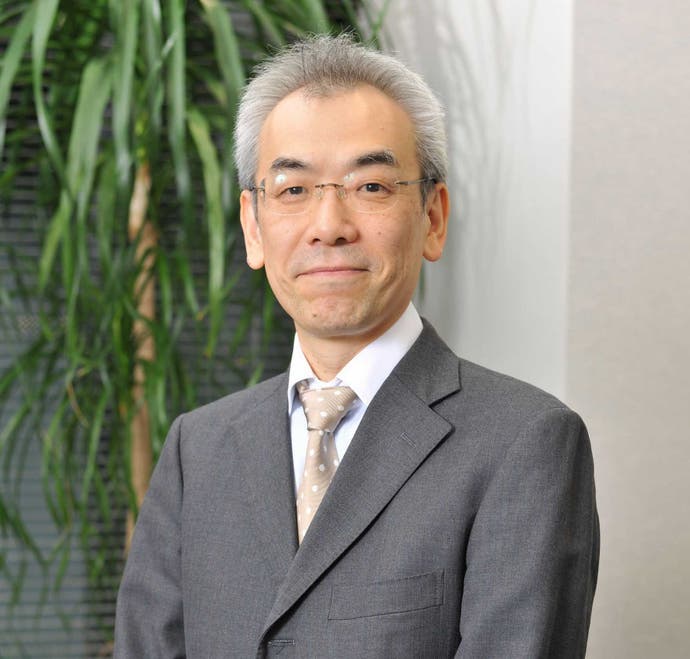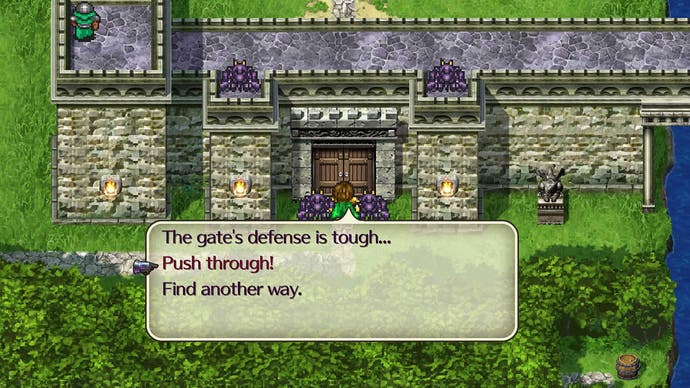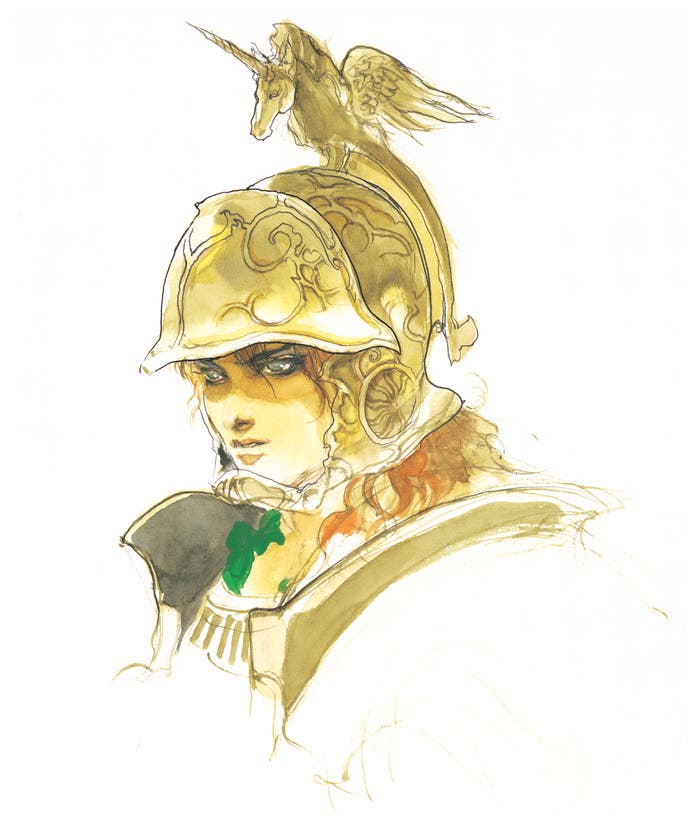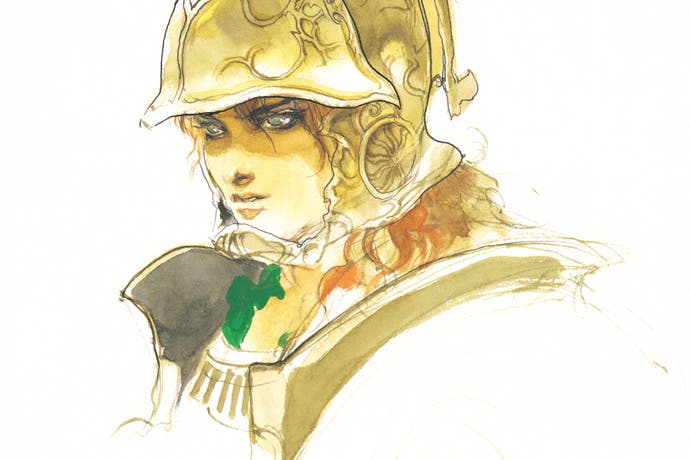Untold Saga: The story of one of the first Final Fantasy's unsung creators
'The more players say let's make it a little easier the more I want to make it a difficult game!'
The story of how Final Fantasy came to be is as famous as any of the tales spun by the series itself. Of how one Hironobu Sakaguchi, working at a Square that was down on its luck, gave his fledgling RPG a little flourish in its title, and how it created an irony that stalks the series to this day. Sakaguchi thought it'd be his last game, while others in the company thought it'd be Square's swansong too, so close to bankruptcy was the entire operation.
There are some sides of that story which aren't told so often, and some people whose role perhaps isn't given the spotlight it deserves. Akitoshi Kawazu was one of eight people in Sakaguchi's team that, over the course of five short months some 30 years ago, created a series that went on to not only save Square but become a phenomenon in its own right.
Kawazu's role has always fascinated me; indeed, looking at his career post-Final Fantasy, at the Square where he still works to this day, he's one of the more fascinating creators in the industry period. A man who makes wilfully obscure games, and delights in their idiosyncrasies, whether they're grasped by players or not. And a man who left an indelible mark on one of the medium's greatest series.
Before you started at Square you were a games journalist. How did you get into that?
When I was a student I got invited by a friend, asking if I wanted to do a part-time job with him. That's where it all started. I started writing about games - originally I was writing about simulation and strategy games, and I started by just writing reviews.
What was the Square that you joined like?
Not really much has changed! It's still a very free kind of atmosphere, you can still grab the horns of what kind of game you'd like to make and control your own path. The big difference is there was about 50 people then...

I've been to the new building in Shinjuku a couple of times, which is gorgeous. How does that compare to the original building?
Way back when, the first office was in Yokohama - but I wasn't there myself. I joined when it was in Ginza. It was a twelve-storey building, and we had the entire building as Square. It's a very affluent area - so it was a great atmosphere there.
When I first started and got that invitation (from Sakaguchi), I had no idea that I'd be invited to do RPGs from the offset. If anything if I was invited to do a game I thought it'd be where I was a bit more knowledgeable - the strategy or simulation games. At the time it wasn't called Final Fantasy, of course - I was just asked to join this team making an RPG. We were talking amongst ourselves, and I found that amongst the team I was more knowledgeable about fantasy lore and what a fantasy RPG would incur, so I could add to the team in that sense.
What was your original role?
First I was given the battle system to create. With regards to the story and the lore, that's where we came together as a team.
You bought a heavy influence from tabletop gaming. How popular was that in Japan at the time?
It might not have been very popular in Japan, but amongst us gamers it was a huge thing for us. I remember on the news channels we'd see about games like Dungeons & Dragons being played in America, and these fantastical stories about people dying for playing it too long, or how this game was amazing. That entered our circle. We got our own localised version, and we thought we had to give it a go - so we played it and really enjoyed that experience.
What is it you wanted to bring over from D&D?
At the time Dragon Quest was a big hit, and that really bought fantasy RPGs on the scene and people were more aware of it as a genre. But that was more on PC games - at the time a lot of PC versions were out - and Dragon Quest was the first to really do that on a Famicom. At the time we really wanted to make Final Fantasy an original title, something so different and unlike anything that had been seen so far. We wanted to not just tweak it - we wanted to make a fundamentally different game that was a bit closer to the fantasy lore and setting that we had in our minds.
The actual development itself - how long did it take, how many people were involved?

We started in March, I joined in May and we gave the master three months after that. It was only five months to create the game itself, and it was eight people at the time. Eight people in five months...
That sounds like quite the slog...
Yeah, I would sleep under my desk.
Famously it's called Final Fantasy because Sakaguchi-san thought it'd be his final game, and because the fate of the company was in the balance at the time. Did it have that sense of finality to the project when making it?
Not at all! At the time we had that very famous saying from Sakaguchi, but we were all fans of Star Wars, so we thought no! We wanted to make it a trilogy like Star Wars! We want sequels! We want everything! But we were told no, it's going to be the final one. We also really liked the name itself, the flow of the name was fantastic.
Dragon Quest was really bigin Japan but at the time there was a big crash and a lot of the development team lost their jobs, were made redundant. So we went from that really expensive place in Ginza to somewhere not so expensive and everything was reduced. It was a real time of cutbacks and sacrifices. We had that in mind, and wanted to make what we could do a success. We wanted to focus our energies. We didn't want it to be the final one, but we did think it'd be the only one we'd make.
So what was it like seeing the eventual success? It must have been quite gratifying.
Well, we always felt we were a little behind Dragon Quest - as a brand we were always towing a little behind them. That obviously changed with Final Fantasy 7 - and we then found we levelled the gap. We look back and I think because we had Dragon Quest to compete with, and we had to push ourselves to match them, that's why it became such a big thing. So we're thankful for that competitive streak!

You worked on Final Fantasy 2, and that still stands out from other games in the series with its approach to levelling among other things. What did you set out to achieve with that?
There was an element of after the first game, we wanted to create something completely different. We wanted to take the first game, put it to one side and then make something completely different. So we changed the system, to have that all-in-one town system, we changed the battle system so it's all about the world memory, but it's still an adventure game. We wanted to do all the things we couldn't do in the first game. We definitely had a sense that with all the staff putting in so much effort to do that, we moved so far away from the original we went back from 3 onwards we kind of went back to the original idea of what an RPG was.
After that you moved onto the Saga series. How do you think Final Fantasy might have differed if you'd have stayed working on Final Fantasy as opposed to working on the Saga games?
It wouldn't be as popular as it is!
You do have a very different approach to RPGs. They're often a bit more obscure, the systems are harder to parse. What is it about that approach appeals to you?
A major part of it is I like difficult games myself. I like a challenge!
When it comes to Saga, people who love it love it an awful lot, but then you get some people who are a bit more confused by it all. Were you ever tempted to change the systems to give it a broader appeal?
The more players say let's make it a little easier the more I want to make it a difficult game!
Unlimited Saga came out and critics didn't really gel with it at all, but it took your tabletop influences to an extreme. Are they still important to you?
Definitely. With video games, if you're just taking inspiration from other games out there there's an element that you're just copying what other people are doing. But if you take inspiration from something else like board games, there's always going to be an originality which I want to maintain.
Do you still play board games much yourself?
I wish I could say yes. There's an element of having to play with other people, and I can't play them on my own so it makes things a little more difficult. But I do still collect them! And I've got a massive pile at home - I'm still a fan at heart.
What is it about board games that makes them special to you?
Before I was a primary school student, I saved up my money and bought Monopoly, and I played it with my siblings and family. I definitely get the sense they let me win at the time, but I'm glad they did. Because of that I found the fondness for board games, and that's probably why I'm here today making games at Square Enix.
Do you have any thoughts on Final Fantasy as it is now?
There were some problems with the production of 15, and a bit of worry before we got there, so we know that going forward with the series anyone working on future titles will really have to put their life on the line, really work hard to make it happen and make it work. But we know we've got great fans out there, and so we hope we can continue doing so.
Romancing Saga 2 is out today on Switch, PS4, PC, Xbox One and Vita

